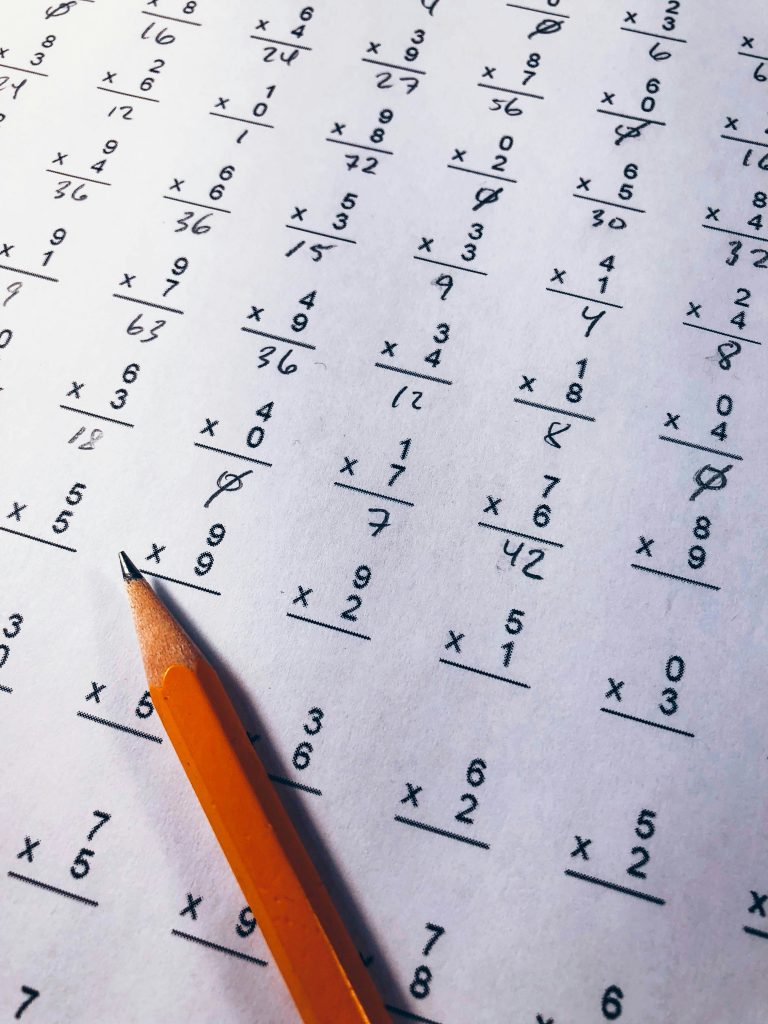Why Every Parent Should Encourage Math Puzzle Solving at Home

Introduction:
As a parent, you may often find yourself wondering how to support your child’s mathematical development. Math can be a challenging subject for many children, leading to frustration and a lack of confidence. However, there is a simple and effective way to enhance your child’s mathematical skills while making learning enjoyable – math puzzle solving.
In this blog post, we will explore the numerous benefits of encouraging your child to solve math puzzles at home. From cognitive development to academic advantages and social-emotional growth, math puzzles offer a holistic approach to enhancing your child’s mathematical abilities. So, let’s dive in and discover why every parent should embrace math puzzle solving as an essential tool for their child’s educational journey.
The Cognitive Development Benefits of Math Puzzle Solving
Math puzzles provide a unique opportunity for children to develop essential cognitive skills that are crucial for their overall growth. Let’s explore some of the key cognitive benefits of math puzzle solving:
Spatial and Logical Skills: Early exposure to puzzles helps children develop stronger spatial reasoning abilities, which are fundamental for geometry, engineering, and computer science.
Problem-Solving Skills: Math crosswords, logic grids, and arithmetic puzzles require children to analyze patterns, test hypotheses, and apply strategic thinking to find solutions.
Memory and Concentration: Completing puzzles requires sustained focus and improves attention spans and working memory, leading to better academic performance.
The Academic Advantages of Math Puzzle Solving
Math puzzles not only enhance cognitive skills but also provide academic advantages that can have a lasting impact on your child’s mathematical abilities. Here’s how math puzzle solving supports academic growth:
STEM Readiness: Math puzzles integrate mathematical concepts with science, fostering interdisciplinary thinking and preparing children for future STEM-related fields.
Numeracy Fluency: Games like “Make-A-Ten Go Fish” and magic squares build number sense and reinforce arithmetic and algebraic skills, improving overall numeracy fluency.
Critical Thinking: Activities like Kakuro or Sudoku challenge children to approach problems creatively, enhancing their critical thinking abilities and preparing them for advanced math and coding.
The Social-Emotional Growth Benefits of Math Puzzle Solving
Math puzzle solving not only benefits cognitive development and academic performance but also supports social-emotional growth, equipping children with valuable life skills. Here’s how math puzzle solving promotes social-emotional development:
Perseverance: Overcoming challenges in puzzles teaches children to embrace mistakes, persist in finding solutions, and develop grit and resilience.
Confidence: Successfully solving puzzles provides a sense of achievement and boosts self-esteem, empowering children to tackle more complex mathematical problems.
Stress Relief: Engaging in puzzle-solving activities offers a calming, screen-free experience that reduces anxiety, promotes mindfulness, and fosters a positive mindset towards mathematics.
The Practical Life Skills Developed Through Math Puzzle Solving
Now that you understand the numerous benefits of math puzzle solving, you may be wondering how to incorporate it into your child’s routine at home. Here are some practical tips to help you get started:
-
Start Early: Introduce shape-sorting puzzles for toddlers and progress to age-appropriate math games like tangrams or arithmetic crosswords as your child grows. This will help them develop a love for problem-solving from an early age.
-
Make It Fun: Use themed puzzles that align with your child’s interests. Whether it’s space exploration, animals, or sports, find puzzles that capture their attention and make learning enjoyable.
-
Encourage Reflection: After your child solves a puzzle, ask them how they arrived at the solution. This will deepen their understanding of the problem-solving process and help them verbalize their reasoning. It also provides an opportunity for you to guide and support their learning.
Tips for Parents
Now that you understand the numerous benefits of math puzzle solving, you may be wondering how to incorporate it into your child’s routine at home. Here are some practical tips to help you get started:
-
Start Early: Introduce shape-sorting puzzles for toddlers and progress to age-appropriate math games like tangrams or arithmetic crosswords as your child grows. This will help them develop a love for problem-solving from an early age.
-
Make It Fun: Use themed puzzles that align with your child’s interests. Whether it’s space exploration, animals, or sports, find puzzles that capture their attention and make learning enjoyable.
-
Encourage Reflection: After your child solves a puzzle, ask them how they arrived at the solution. This will deepen their understanding of the problem-solving process and help them verbalize their reasoning. It also provides an opportunity for you to guide and support their learning.
Table: Key Benefits of Encouraging Math Puzzle Solving at Home
|
Benefit |
How Math Puzzles Help |
|---|---|
|
Enhances Problem-Solving Skills |
Children develop strategies, analyze situations, and devise solutions for challenges in math and life. |
|
Promotes Logical & Analytical Thinking |
Puzzles connect math concepts to real-world applications, fostering critical thinking. |
|
Builds Concentration & Focus |
Solving puzzles requires sustained attention, improving a child’s ability to concentrate on tasks. |
|
Encourages Flexible Thinking |
Puzzles require exploring multiple solutions, fostering adaptability and creative thinking. |
|
Boosts Confidence & Motivation |
Overcoming challenges and achieving success in puzzles increases self-esteem and motivation. |
|
Develops Essential Math Skills |
Puzzles reinforce counting, addition, subtraction, and other foundational math skills. |
|
Supports Social Skills & Collaboration |
Working on puzzles together builds communication, teamwork, and shared learning experiences. |
|
Keeps Children Engaged |
The fun and interactive nature of puzzles makes learning enjoyable and encourages a positive attitude. |
|
Improves Mind-Body Coordination |
Physical puzzle-solving enhances coordination between thinking and action. |
|
Instils Persistence & Patience |
Puzzles teach children to persist through challenges and develop patience. |
Summing Up
In conclusion, math puzzle solving offers far-reaching benefits for your child’s cognitive development, academic performance, social-emotional growth, and practical life skills. By encouraging math puzzle solving at home, you can support your child’s mathematical journey while making learning enjoyable and engaging.
Remember, SIP Abacus offers world-class skill development programs that utilize the abacus tool and visualization techniques to teach children mental math skills. Their curriculum is designed to enhance children’s mathematical abilities while promoting overall development. By incorporating math puzzle solving into your child’s routine, you can provide them with a competitive edge and set them up for success in their academic and personal lives.
So, why wait? Embrace math puzzle solving as a valuable educational tool and witness the transformative impact it can have on your child’s mathematical skills. Start today and embark on an adventure of learning, growth, and fun!



